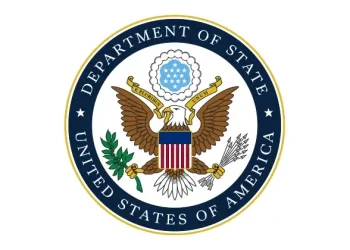U.S. Customs and Border Protection (CBP) officers in Indianapolis have intercepted a shipment of counterfeit Cartier watches valued at $4.2 million, preventing the goods from reaching American consumers.
The seizure highlights CBP’s role in protecting legitimate businesses and combating global counterfeit trade.
Introduction
On August 8, 2024, CBP officers at the Port of Indianapolis seized 30 counterfeit Cartier watches originating from Hong Kong and bound for New York. The goods violated federally protected trademarks and, if genuine, would have had a Manufacturer’s Suggested Retail Price of $4.2 million.
Details of the Seizure
CBP officers discovered the shipment during routine inspections, identifying unauthorized use of Cartier’s trademark.
The agency confirmed the goods’ counterfeit status with assistance from the Centers of Excellence and Expertise, CBP’s specialized trade experts.
“Purchasing counterfeit goods enables criminal enterprises,”
said LaFonda D. Sutton-Burke, Director of Field Operations, Chicago Field Office.
“The profits from these items fund illicit activities, and CBP officers are dedicated to stopping the flow of pirated merchandise.”
The seized watches were intended for distribution in New York, potentially reaching unsuspecting buyers through underground markets or online platforms.
Counterfeit Goods: A Persistent Problem
For the past three years, jewelry, watches, and handbags have ranked as the top commodities seized for Intellectual Property Rights (IPR) infringement by total MSRP value.
China and Hong Kong remain the primary sources, accounting for roughly 90% of such seizures in Fiscal Year 2024.
Most Common Counterfeit Commodities by Value
| Commodity Type | Ranking (by MSRP) | Primary Source Regions |
|---|---|---|
| Jewelry | 1 | China, Hong Kong |
| Watches | 2 | China, Hong Kong |
| Handbags/Wallets | 3 | China, Hong Kong |
Risks to Consumers and Businesses
Counterfeit products are not only illegal but also harmful. Buyers often believe they are purchasing authentic goods, only to receive substandard items. These products may contain unsafe materials, lack quality control, and violate labor laws.
Main concerns include:
-
Funding organized crime and smuggling operations
-
Undermining legitimate businesses and jobs
-
Threatening public health and safety
CBP’s Role in Protecting U.S. Markets
Through aggressive IPR enforcement, CBP safeguards American innovation and shields the economy from unfair competition.
The Port of Indianapolis works closely with domestic and international partners to stop counterfeit goods at entry points before they reach consumers.
CBP also urges the public to verify the authenticity of products, especially when shopping online or through unfamiliar sellers.
In Conclusion
This seizure underscores the ongoing threat of counterfeit goods to the U.S. economy, public safety, and consumer trust.
CBP encourages shoppers to remain vigilant, avoid suspicious online deals, and report suspected counterfeit merchandise to authorities.
Sources: US Customs and Border Protection.
Prepared by Ivan Alexander Golden, Founder of THX News™, an independent news organization delivering timely insights from global official sources. Combines AI-analyzed research with human-edited accuracy and context.








